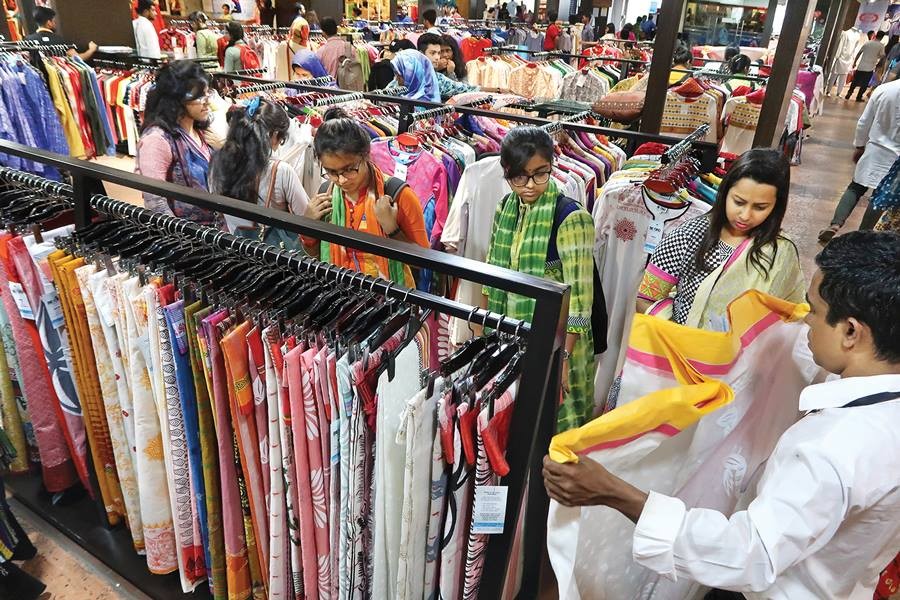Supply of various items of Indian clothing to the market has affected the sales of locally made Baishakhi wear to some extent, according to fashion house owners in the city.
They said their sales in this Baishakhi festival would have been greater than that of the last year, if the authorities could limit the supply of Indian wear.
Besides, many shoppers travelled to the neighbouring country to buy clothing for the Bangla New Year festival, they said, adding that if such trend continues, local fashion houses will face a major setback in the next year.
Many Indian TV channels have aired advertisements and promotional activities to attract Bangladeshi customers, said Tania Tofail Haque, owner of Nandan Kutir, a fashion house.
"They have campaigned that Bangladeshi customers like to celebrate the traditional festival wearing Indian clothing. So, many customers went to that country for shopping," she said.
She also said Bangladeshi TV channels don't highlight local wear this way. So, people remain unaware of locally made fashion wear.
"Local television channels mostly focus on a few big brands, although a large number of boutique and fashion houses are making quality and trendy clothing," Ms Haque said.
She requested the media to launch promotional programmes on different local brands one or two months before every festival to help increase their sales.
Ashrafur Rahman Faruque, president of Bangladesh Handicrafts Manufacturers and Exporters Association, popularly known as Banglacraft, said they did not see sales at desired level this year due to big supply of Indian wear.
The authorities should limit the flow of imported wear from the neighbouring country, he said.
"Otherwise, we will be affected in the next year as well," he warned.
Fashion houses usually target traditional festivals and national days like Independence Day and Ekushey February to do a brisk business.
Usually, Indian wear or their replicas were sold during Eid festivals.
"But since last year, we have noticed that Indian clothing are also being imported ahead of the Pahela Baishakh," he said.
Mr Faruque, also the vice-president of Fashion Entrepreneurs Association of Bangladesh (FEAB), said government should take an initiative to adopt a proper policy to protect the local apparel sector.
The authorities should also apply techniques to check the flow of clothing items from India, he observed.
Some traders at the city's Aziz Super Market said their sales were affected slightly due to anti-quota demonstrations at Shahbagh, but overall sales were not bad.
"My showroom has seen good sales ahead of Pahela Baishakh," said Shohag, salesman of Satkahon.
On Friday, a significant number of customers turned up at his shop, he added.
Shohag sold lady's tops at Tk 1150 to Tk 1550 each and punjabi for men at Tk 1050 to 1250 each.
Like previous years, outlets displayed various colourful wear and accessories for fashion-loving shoppers. All festival clothing have been made with red and white fabrics. Embroidery and painting works have been applied on almost every wear.


